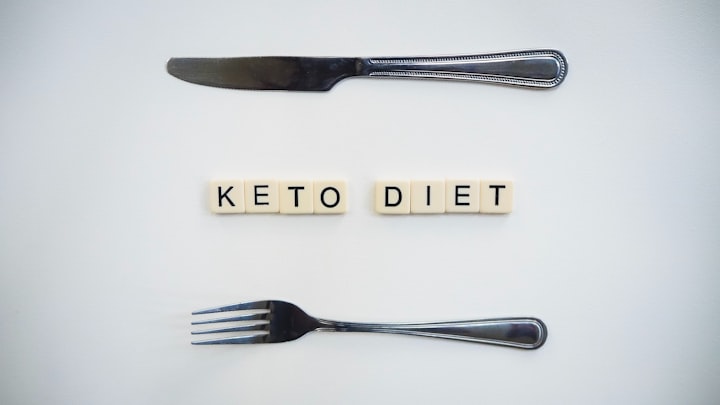Keto Diet to Reduce Inflammation
Inflammation is a natural response of the body to protect itself from harm.

Inflammation is a natural response of the body to protect itself from harm. However, when this response becomes chronic, it can lead to a range of health problems, including obesity, diabetes, heart disease, and even certain types of cancer. The ketogenic diet, also known as the keto diet, is a low-carb, high-fat diet that has been shown to have anti-inflammatory effects and may help reduce the risk of these chronic conditions.
What is the Keto Diet?
The ketogenic diet is a high-fat, low-carbohydrate diet that is designed to put the body into a state of ketosis. In this state, the body burns fat for fuel instead of carbohydrates. The diet typically includes foods such as meat, fish, eggs, dairy products, oils, and low-carbohydrate vegetables like spinach, broccoli, and cauliflower. The goal is to consume 75% of your daily calories from fat, 20% from protein, and only 5% from carbohydrates.
How Does the Keto Diet Reduce Inflammation?
There are several ways in which the ketogenic diet can help reduce inflammation in the body. Firstly, the diet eliminates many of the foods that are known to trigger inflammation, such as processed foods, sugar, and refined carbohydrates. These foods are replaced with healthy fats, which have been shown to have anti-inflammatory effects.
Additionally, the ketogenic diet can improve insulin sensitivity, which is important for reducing inflammation. Insulin resistance is a key factor in the development of chronic conditions such as obesity, diabetes, and heart disease. By improving insulin sensitivity, the ketogenic diet can help to reduce the risk of these conditions and the associated inflammation.
Another way in which the ketogenic diet can reduce inflammation is by reducing oxidative stress. Oxidative stress is caused by an imbalance between the production of free radicals and the body's ability to neutralize them. Free radicals can damage cells and lead to inflammation. By reducing oxidative stress, the ketogenic diet can help to reduce inflammation and improve overall health.
Finally, the ketogenic diet can improve gut health, which is important for reducing inflammation. The gut is home to trillions of bacteria, and an imbalance of these bacteria can lead to inflammation. By improving gut health, the ketogenic diet can help to reduce inflammation and improve overall health.
What are the Benefits of the Keto Diet for Inflammation?
In addition to reducing inflammation, the ketogenic diet has a number of other benefits that can improve overall health. These benefits include:
Weight loss: The ketogenic diet is a highly effective way to lose weight, as it causes the body to burn fat for fuel instead of carbohydrates.
Improved energy levels: By switching to a diet that is high in healthy fats and low in carbohydrates, the body is able to maintain stable energy levels throughout the day.
Improved brain function: The ketogenic diet has been shown to improve brain function, as the brain is able to use ketones as a fuel source.
Improved cholesterol levels: The ketogenic diet has been shown to improve cholesterol levels, as it helps to reduce the levels of "bad" cholesterol (LDL) and increase the levels of "good" cholesterol (HDL).
Improved blood sugar control: By improving insulin sensitivity, the ketogenic diet can help to improve blood sugar control and reduce the risk of developing type 2 diabetes.
In conclusion, the ketogenic diet is a highly effective way to reduce inflammation and improve overall health. By eliminating inflammatory foods, improving insulin sensitivity, reducing oxidative stress, and improving gut health, the ketogenic diet can help to prevent chronic conditions and improve overall wellness. However, it is important to note that the ketogenic diet should not be started without the guidance of a healthcare professional, as it can have potential adverse effects for some individuals. If you are interested in trying the ketogenic diet to reduce inflammation, it is recommended that you speak with your doctor or a registered dietitian to ensure that it is safe and appropriate for you.
Additionally, it is important to remember that the ketogenic diet is not a one-size-fits-all approach to nutrition. Everyone has unique nutritional needs and the macronutrient ratios that work for one person may not work for another. It is important to listen to your body and make adjustments as needed to find the macronutrient ratios that work best for you.
Overall, the ketogenic diet can be a powerful tool in reducing inflammation and improving overall health. By incorporating healthy fats, reducing carbohydrates, and eliminating inflammatory foods, the ketogenic diet can help to reduce chronic inflammation and improve overall wellness. If you are interested in trying the ketogenic diet, speak with your doctor or a registered dietitian to ensure that it is safe and appropriate for you.
About the Creator
Maria Jones
I am my own experiment. I am my own work of art.
Enjoyed the story? Support the Creator.
Subscribe for free to receive all their stories in your feed. You could also pledge your support or give them a one-off tip, letting them know you appreciate their work.






Comments
There are no comments for this story
Be the first to respond and start the conversation.